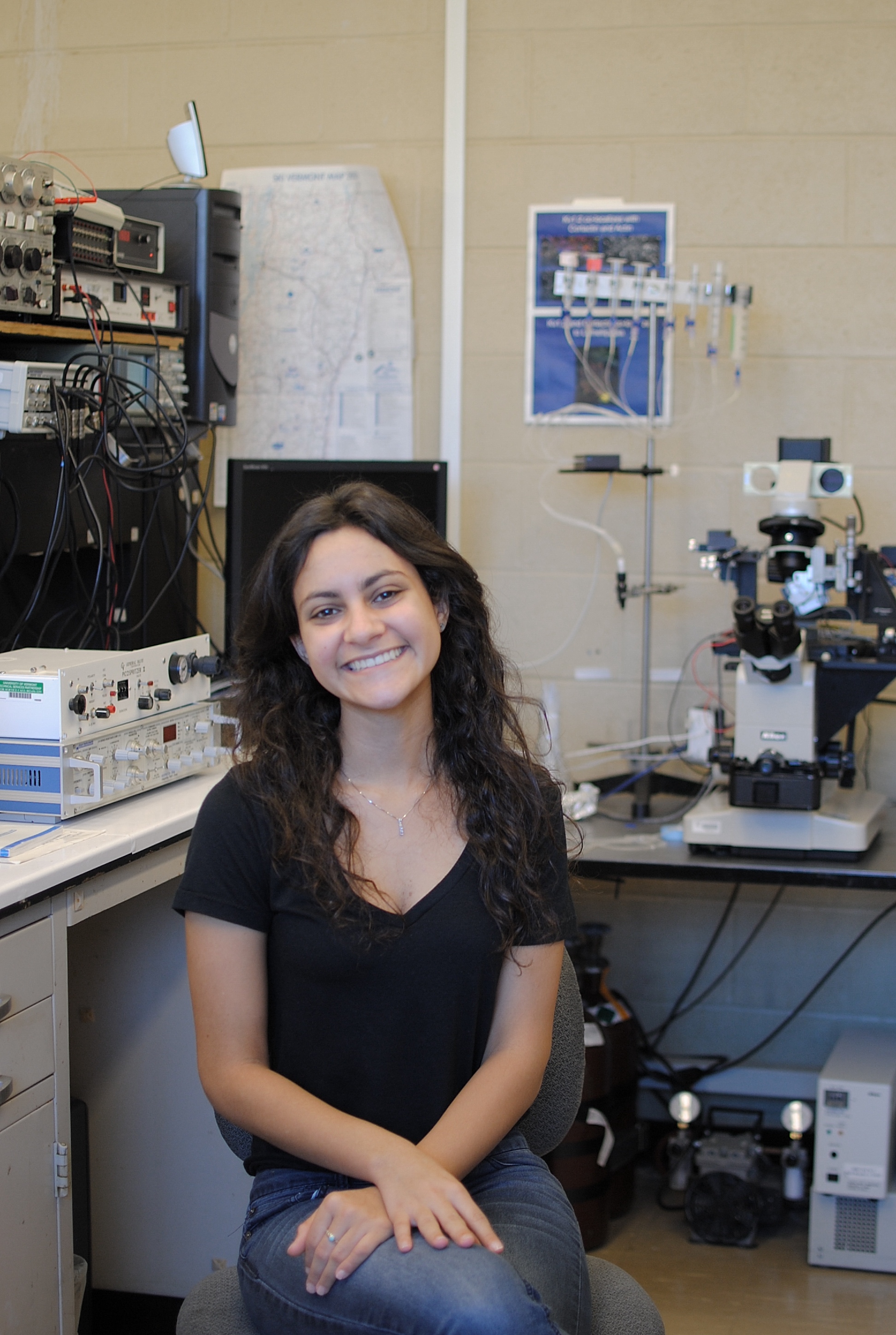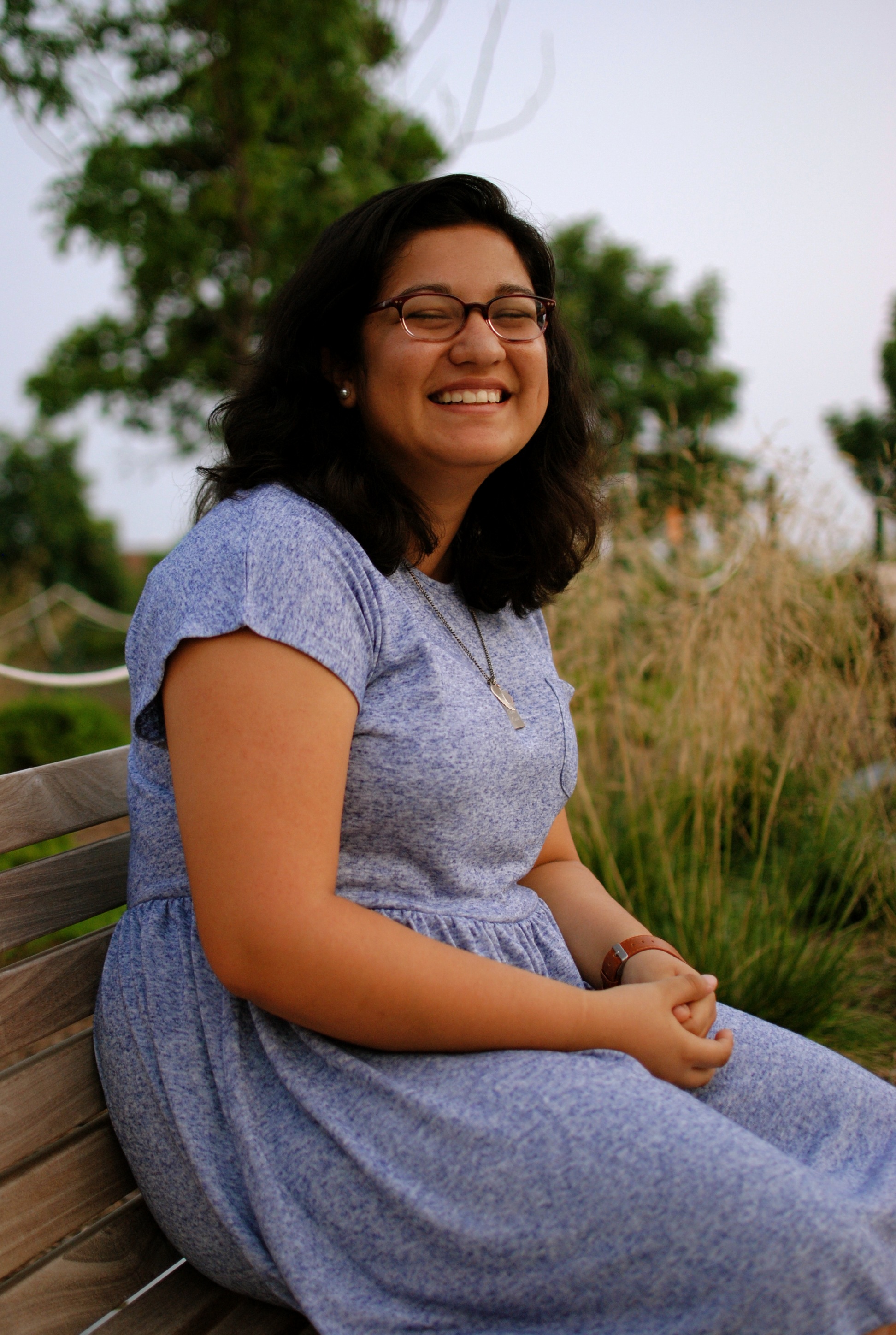 Ezana Assefa
Ezana Assefa Ezana Assefa
Ezana AssefaMentor: Dr. William Falls
College/University: Nova Southeastern University
Hometown: Davie, FL
“I am interested in neuroscience because I think it is one of the most fascinating sciences that has emerged into our scope of inquiry. The capabilities and functions of the brain have always captivated my attention and fueled my desire to study the neural machinery created for us to interact with and perceive ourselves and the world.
Through the SNURF program, I’ve had the chance to experience every part of an experiment, from devising a project to analyzing data then the cycle continues. Gaining insight into every aspect of researching a specific area of neuroscience has helped me understand the importance of the foundational dogmas laid in the past and the interconnectedness of neuroscience as a whole. Dr. Falls’ lab has helped me recognize the necessity of asking questions and thinking critically about every step in the process of formulating and studying a hypothesis.
This program has not only given me the opportunity to gain research experience, but more importantly, it has challenged how I think about topics and questions, which has helped me develop better critical thinking skills. I have also valued being surrounded with other students with similar interests as me. It has been very rewarding talking with my fellow SNURFs about different topics in neuroscience or the new techniques we’ve learned in our labs. Overall, this entire experience has been quite memorable and has given me a positive insight into what a career in this field might consist of.”
 Summer Atkinson
Summer AtkinsonMentor: Dr. Magdalena Naylor
College/University: University of Vermont
Hometown: Niantic, CT
"I am really interested in psychiatric disorders, their complex underlying causes, and their potential treatments. Specifically, I really enjoy learning about the electrophysiological processes of neurons and their far-reaching effects, as well as genetic predispositions to different disorders. I also find cognitive behavioral therapy (CBT) fascinating, and would love to eventually become certified in this type of mental health counseling.
After graduating, I plan on going on to earn my PhD and continue doing research. The SNURF program has allowed me to gain hands-on experience in genetic extraction and sequencing, as well as other lab techniques that have been hugely rewarding and will be very useful in grad school. I was also able to spend time in an fMRI suite and learn more about diagnostic imaging in general. Additionally, I have gained experience in writing scholarly papers and giving presentations, which will help me to hopefully publish my own papers some day. The SNURF program even provided lectures covering a huge range of fields within neuroscience, which were both informative and useful.
I was really lucky to be a part of this program and have met some really awesome people who I hope keep in touch after we all go back to our respective schools.”
 Ashley Dillon
Ashley Dillon Mentor: Dr. Donna Toufexis
College/University: Hiram College
Hometown: Orwell, OH
Neuroscience is fascinating to me, for this field allows us to pick apart the brain and understand how humans function. From thoughts and actions to disorders and treatments, neuroscience is deconstructing and recreating what it takes to make a brain. My interests specifically focus around the behavioral aspect, but I love learning how everything fits together.
The SNURF program offered me an amazing summer of research, and it helped my decision to continue a career in scientific research become more concrete. Since neuroscience is so diverse I was immensely excited to be presented with an opportunity to jump into something new. While becoming part of an established research lab was intimidating, I quickly learned that the scientific environment at UVM was friendly and eager to impart knowledge. The academic and lab techniques I’ve learned this summer are no doubt priceless in becoming a researcher. Between lecturers and fellow SNURFs I’ve learned so much more about the field of neuroscience.
My experiences here will no doubt carry me further into my career as a neuroscientist, and they have given me confidence for when my time comes to apply to graduate school.
 Greggory Heller
Greggory Heller Mentor: Dr. Pierre-Pascal Lenck-Santini
College/University: Bates College
Hometown: Walla Walla, WA
“Neuroscience holds the key to understanding why we are the way we are. The secrets of our behavior, our feelings, our perception and perhaps our consciousness lie within the brain and to me these are the most interesting questions that have ever been asked, and thus the ones I hope to investigate. In the future I hope to use computer modeling to connect what we know about the brain at the level of the synapse, neuron and neural circuit all the way up to to the level of behavior.
The SNURF program has confirmed that Neuroscience is the field I belong in and that I want to pursue my PhD. It has helped me learn a multitude of techniques, both general approaches to practicing science and specific methods for experiments. It has exposed me to a variety of different lab environments and lab members which has abolished my fear that being a scientist will be a lonely, isolated, antisocial career. A scientist is not a lone individual working at a lab bench, but rather one piece of a large cooperative effort. This summer has been an amazing experience and I am very thankful for this opportunity.”
 Michael Onwukaeme
Michael Onwukaeme Mentor: Dr. Rodney C. Scott
College/University: Howard University
Hometown: Powder Springs, GA
“I have always been interested in neuroscience, because the brain is the most powerful organ in the human body and contains the key to success. Consisting of billions of cells, the brain has served as an apparatus that gives us our personality, individualism, consciousness, and understanding. Emily Dickinson once wrote, “The Brain is wider than the Sky”. Reflecting back on the short poem, it gives validation of the capacity for the brain to interpret, analyze, and subsume perception and experience.
Through the SNURF program, I have been able to challenge myself beyond the scope of my comfort zone. From running experiments to learning several techniques and methods, I have gained a valuable perspective of what neuroscience entails; and the typical day as a scientist. After the completion of my program of study, I plan to pursue my MD/PhD. This will allow me to make a positive change in the global community and render aid to my familial country-Nigeria.
I am really fortunate to have been accepted to this rigorous program. My mother has always told me to count my blessings. For the past ten weeks, I have surrounded myself with a think-tank of brilliant individuals who not only offered their support, but also have similar goals and aspirations as myself. I have built life long connections, bonds, and memories with not only all the SNURFS, but with the wonderful faculty and staff at UVM.”
 Tara Ramirez
Tara Ramirez Mentor: Dr. Anthony Morielli
College/University: University of Puerto Rico, Rio Piedras
Hometown: San Juan, Puerto Rico
 Heleni Ramirez
Heleni Ramirez Mentor: Dr. Alexandra Potter
College/University: California Polytechnic State
University, San Luis Obispo
Hometown: Pittsburg, CA
"Neuroscience research is fascinating and intriguing. There are multiple layers to the field from a micro- to a macro- level, with each sub-discipline examining the brain’s complexities in different ways. Through the SNURF program I was able to attend lectures on these diverse areas and better understand how the brain works. In lab, I learned new computer programs and tasks, which helped us collect and analyze behavioral and fMRI data. Once we analyzed all the data we began to see how the collection lead us to a concise answer in the form of activation in an fMRI image or a telling p-value. It was moving and fascinating to see how a significant amount of data can yield the answer to a precise question.
Before attending SNURF, I was hesitant about conducting neuroscience research, but now I feel confident in applying to PhD programs and exceling in a rigorous lab. When I came in I was intimated by the thought of collecting data and working with experts. The ability to hold my own in the lab felt daunting and unattainable. However, the research skills I have developed this summer have helped me gain the self-confidence to complete a successful research project. There is still a great deal I have to learn before I can become an excellent scientist, but this fellowship has given me the confidence to succeed from this point on in my scientific career.
I couldn’t have had a better hands-on experience learning from the faculty and other students in SNURF and the Clinical Neuroscience Research Unit. The program has given me a better indication of the type of research I want to pursue in graduate school. The practical exposure provided insight into the intensity and rigor I can expect at a graduate level. I plan to take the technical and critical thinking skills I refined here at the University of Vermont and apply them at my home university and well beyond into my career as a researcher. Finally, I’ll be taking all the memorable experiences I had with great people this summer, from kayaking on Lake Champlain to enjoying the fireworks on Independence Day.
 Irene Jo Sue
Irene Jo Sue Mentor: Dr. Robert Althoff and Dr. James Hudziak
College/University: University of Vermont
Hometown: Brooklyn, NY
 Kori Williams
Kori Williams Mentor: Dr. Bryan Ballif
College/University: Georgia Southern University
Hometown: Evans, GA
"My interests focus on neurodevelopmental disorders, and how they arise and develop from zygote to death. While much may be known about the behavioral mechanisms of these disorders, little is known regarding the molecular basis and understanding of their development. I plan on pursuing a career that explores these unknown aspects.
As a current Biology major with molecular interests, I wanted to explore the field of neuroscience to gain insight for a future Ph.D. The SNURF program has exposed me to this field by performing neuroscience based research, listening to chalk talks and career planning exposés, having scientific based discussions, and scientific writing and presenting that give a mini-perspective of a grad school experience. My current research is with DNA and zebrafish; while at UVM, I have broadened my research experience to include proteins and cell lines.
Even though I have never been to Vermont before this experience, I would 100% recommend applying. Applications for internships are similar to graduate school applications, and help in evaluating your true intentions in research. Coming to a place I'm not so familiar with has helped me to assess my preferences in future career and grad school placement. Burlington offers an environment where you can spend time gaining valuable experience in the lab, while also having a place to relax and enjoy during a beautiful summer in New England with your fellow SNURFs."
 Christopher Zerr
Christopher Zerr Mentor: Dr. Mark Bouton
College/University: Truman State University
Hometown: St. Charles, MO
“My interest is in understanding the relation between psychological and neural processes, as well as how these processes are exhibited in behavior. In particular, I’m interested in studying the basic processing units underlying learning and memory, how individual features of experience are combined to form complex memories, and how these mechanisms impact future learning and behavior.
The SNURF program has provided me with a preview of what to expect in graduate school, as well as an overview of the various subfields within neuroscience. I’ve had the opportunity to attend lectures and seminars covering topics such as behavioral analysis, electrophysiology, neuroanatomical studies, scientific integrity, and writing skills. Working in Dr. Bouton’s laboratory has allowed me to study basic behavioral processes in learning and memory, as well as understand the various techniques used to investigate them.
This experience has improved my skills as a researcher – whether it be formulating hypotheses, conducting experiments, writing manuscripts, or examining the current scientific literature – and solidified my desire to pursue a career in learning and memory research.”